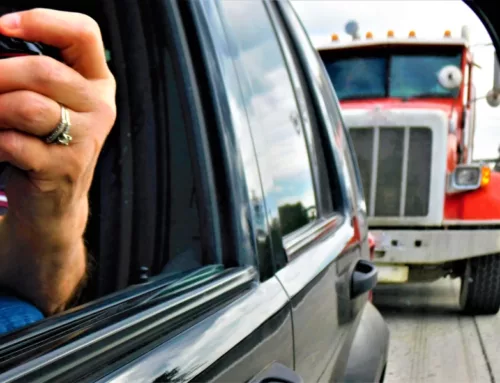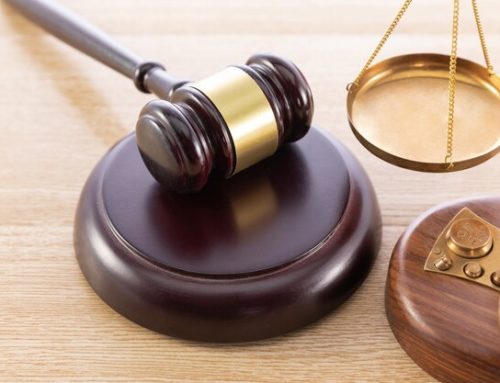Understand what bankruptcy can and cannot do with the help of a bankruptcy lawyer
Although bankruptcy has an unfavorable view sometimes, it can give people and businesses a chance for a new beginning, allowing them to organize their money and, ultimately, aiding them in regaining control over their prospects. Knowing what bankruptcy can and cannot do is an advantage to fully benefit from it in Ridgeland, Mississippi, or any other US state.
It is essential to consider a range of recommended actions and things to avoid. To effectively navigate the complexities of bankruptcy laws, assess your choices, and create a tailored strategy that aligns with your financial circumstances, consult with skilled professionals like our Mississippi bankruptcy lawyers at The Rollins Law Firm.
Steer clear of trying to hide assets or involving yourself in deceitful actions, as these actions may lead to severe legal consequences. Our attorneys can provide valuable advice on how to protect your assets, strategize for exemptions, and minimize the impact of bankruptcy on your credit and personal financial situation. These steps can ultimately assist you in attaining the most favorable outcome for your financial future.
What Bankruptcy Can Commonly Do?
In the United States, filing for bankruptcy is a legal procedure that gives people, businesses, and other entities a method to deal with severe financial troubles and, in some situations, get relief from certain debts. Federal law governs bankruptcy and provides several distinct sorts of bankruptcy processes, each with its guidelines and repercussions.
Discharge of Debts
Discharge (elimination) of certain debts is one of the main goals of bankruptcy. That indicates that the debtor is no longer required by law to pay back the obligations. Credit card debt, medical expenses, and unsecured personal loans are typical debts that can be dismissed.
Automatic Stay
An automatic stay is triggered when a bankruptcy case is filed. That halts all further collection efforts by creditors, including lawsuits, wage garnishments, and obnoxious phone calls. The debtor now has some time to address their financial position.
Repayment Plans
Some bankruptcy chapters, such as Chapter 13, let people with a steady source of income put out a repayment strategy. In Chapter 13, the debtor pays a bankruptcy trustee regularly, who then distributes the money to creditors over a predetermined time (often three to five years).
Asset Protection
In some circumstances, declaring bankruptcy may enable a person to shield some assets from being seized by creditors. Exemptions under state and federal bankruptcy laws specify what property can be kept during bankruptcy. These exemptions differ by state. You can select between the Mississippi state exemptions or the federal bankruptcy exemptions in Mississippi, but not both.
Business Reorganization
Businesses frequently declare bankruptcy under Chapter 11, which enables them to restructure their finances, renegotiate contracts, and carry on with business as usual while paying off creditors over time. Chapter 11 strives to maintain the company’s existence and financial viability.
Debt Consolidation
Unsecured debts can be discharged through Chapter 7 bankruptcy or liquidation bankruptcy, giving you a fresh start. It can be necessary to liquidate non-exempt assets to pay off creditors.
Discharge of Student Loans (if applicable)
Although it is typically challenging, it is not impossible to discharge student loan debt in bankruptcy. To do so, the debtor must meet the high legal bar of “undue hardship,” which is required.
Discharge of Tax Debts (if applicable)
Depending on elements, including the age of the debt and whether the person filed valid forms, some tax debts may be dischargeable in bankruptcy.
There are other common can-do’s of bankruptcy, and we are barely scratching the surface of bankruptcy law. That will require time and effort to know and understand, and that is where our knowledgeable Mississippi bankruptcy lawyers come in to give you options to choose from when dealing with bankruptcy.
What Bankruptcy Cannot Commonly Do?
Below, we list some of the most common bankruptcy cannot-dos.
Remove Certain Types of Debt
Not all debts are eligible for bankruptcy discharge (elimination). Some examples of non-dischargeable obligations are child support, alimony, most school loans, some taxes, and debts incurred from fraud or criminal behavior.
All Asset Protection
Following bankruptcy law, a person may exclude (guard) specific assets from being liquidated to pay creditors. Particular exemptions differ from state to state, and not all assets may be exempt. In Chapter 7 bankruptcy, non-exempt property may be auctioned to pay debts.
The homestead exemption in Mississippi, which varies depending on age and marital status (up to $75,000 for those under 60, up to $125,000 for those 60 or over, and up to $100,000 for senior married couples), is one of many options available to safeguard assets during bankruptcy. Household goods, jewels, instruments of the trade, and one car are all exempt from personal property taxes (with some restrictions).
There is a $10,000 “wild card” exemption available. Retirement assets like 401(k)s and IRAs are protected without set dollar restrictions. Excluded from creditors during bankruptcy are public benefits, insurance revenues, alimony, child support, and tools of the trade up to $2,500. Remember that exemption amounts are subject to change.
Restore Your Credit Instantly
It may be more challenging to get fresh credit immediately after bankruptcy due to the severe unfavorable effects it can have on your credit score and credit record. It will continue appearing on your credit record for several years, making it harder to get credit cards or loans.
Getting Rid of Secured Debts Without Giving Up Collateral
If you have secured debts (such as a vehicle loan or a mortgage) in Chapter 7 bankruptcy, you must either continue making payments on the debt or give the creditor the collateral (such as the car or house) to discharge the obligation. You might be able to maintain the collateral and repay the loan over time under Chapter 13 bankruptcy.
Assurance of Future Credit Approval
Even after bankruptcy, it may be troublesome to get new credit, and because of your bankruptcy past, lenders might give loans at higher interest rates or with less favorable terms.
Get Rid of All Debts for Every Filer
Not everyone is eligible for bankruptcy, and those who are cannot have all their debts discharged. Depending on the precise bankruptcy chapter filed (e.g., Chapter 7 or Chapter 13) and individual circumstances, eligibility and the kinds of debts that can be dismissed vary.
Know More About What Bankruptcy Can and Cannot Do in Ridgeland, MS, With Our Bankruptcy Lawyers
Our Mississippi bankruptcy lawyers at The Rollins Law Firm evaluate your financial situation, clarify bankruptcy types and eligibility requirements, and outline which debts may and cannot be discharged to provide important information. We will clarify how bankruptcy impacts your possessions and assets, offer assistance with repayment plans, and provide legal protection against claims from creditors.
Our law firm will assist you in filing for bankruptcy and offer free consultations to individuals who require guidance. We also provide other legal services like personal injury, Social Security, and workers compensation.
We wish to guide people and organizations in long-term financial planning and look into other debt-relief choices if bankruptcy is not the best option; thus, we want to help them make proper financial decisions. To learn more, contact us right away!








Connect with Us